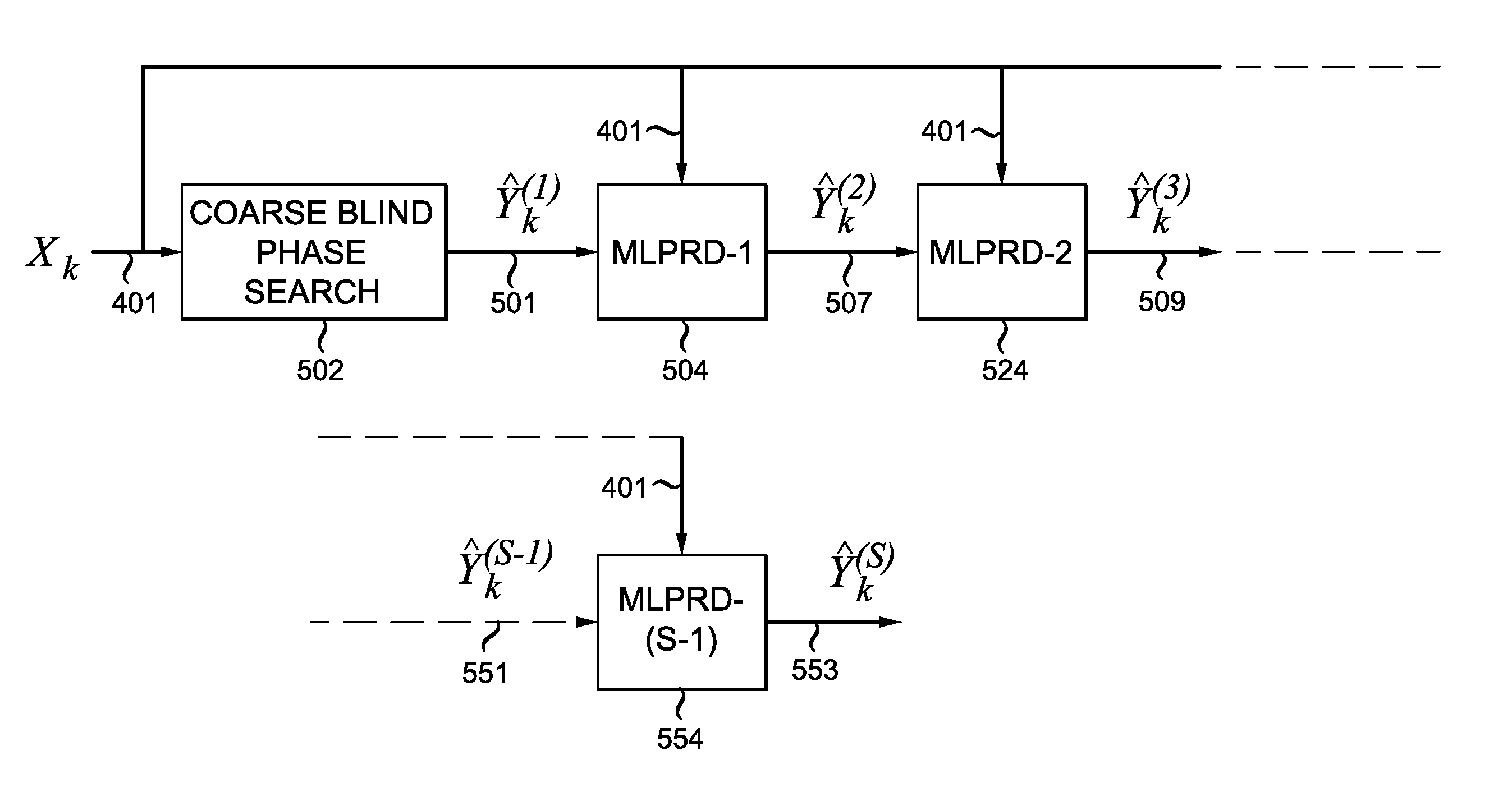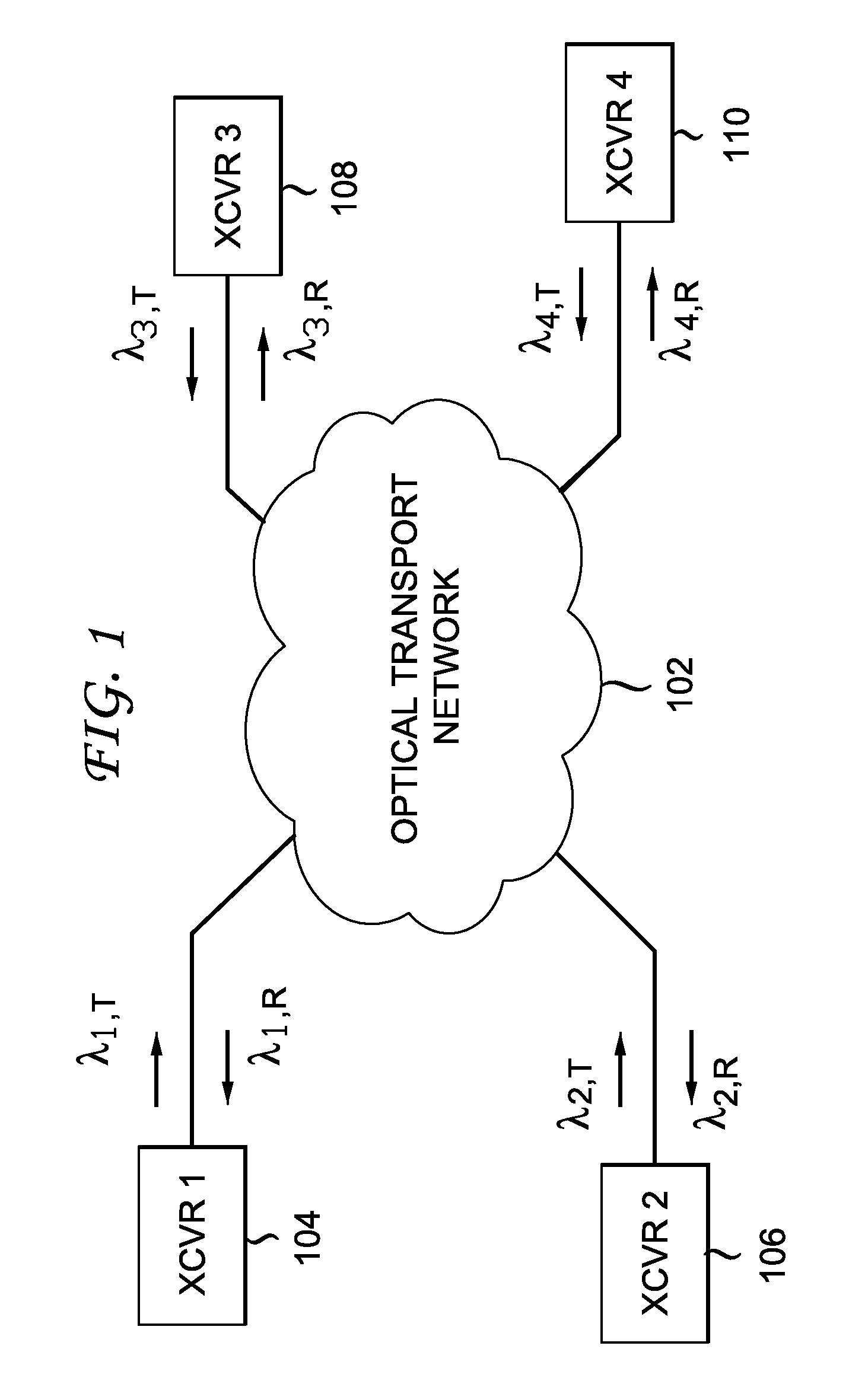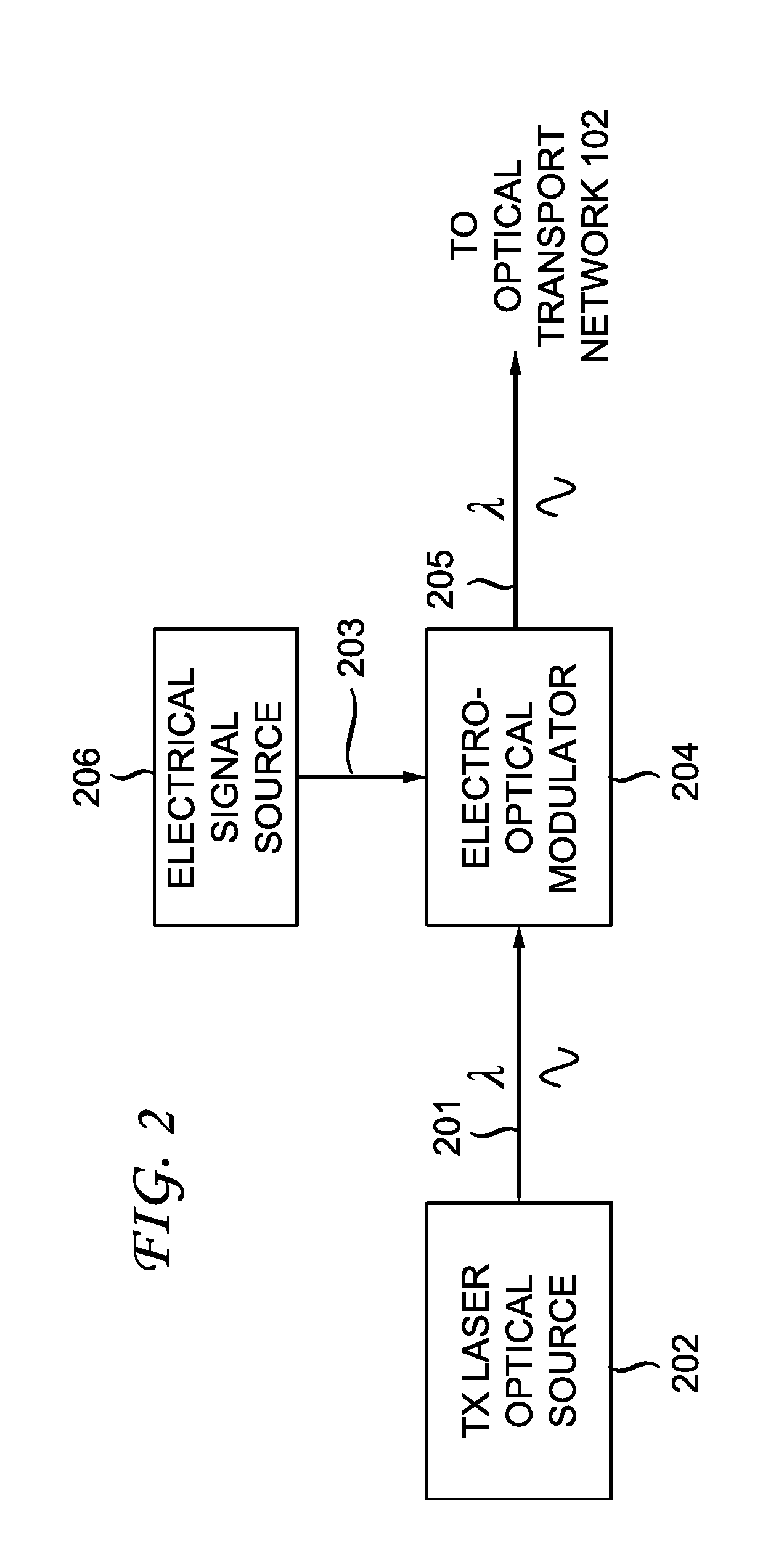Feed-forward carrier phase recovery for optical communications
a carrier phase recovery and optical communication technology, applied in the field of optical communication, can solve the problems of inherently inability to improve laser linewidth tolerance, and relatively poor laser linewidth tolerance of methods
- Summary
- Abstract
- Description
- Claims
- Application Information
AI Technical Summary
Benefits of technology
Problems solved by technology
Method used
Image
Examples
Embodiment Construction
[0017]FIG. 1 shows a schematic of a generic optical telecommunications system. Multiple optical transceivers (XCVRs) send and receive lightwave signals via optical transport network 102. Shown are four representative transceivers, referenced as XCVR 1104, XCVR 2106, XCVR 3108, and XCVR 4110, respectively. In some optical telecommunications systems, optical transport network 102 can include all optical components. In other optical telecommunications systems, optical transport network 102 can include a combination of optical and optoelectronic components. The transport medium in optical transport network 102 is typically optical fiber; however, other transport medium (such as air, in the case of free-space optics) can be deployed.
[0018]Each transceiver has a corresponding transmit wavelength (λn,T) and a corresponding receive wavelength (λn,R), where n=1-4. In some optical telecommunications systems, the transmit and receive wavelengths for a specific transceiver are the same. In othe...
PUM
 Login to View More
Login to View More Abstract
Description
Claims
Application Information
 Login to View More
Login to View More - R&D
- Intellectual Property
- Life Sciences
- Materials
- Tech Scout
- Unparalleled Data Quality
- Higher Quality Content
- 60% Fewer Hallucinations
Browse by: Latest US Patents, China's latest patents, Technical Efficacy Thesaurus, Application Domain, Technology Topic, Popular Technical Reports.
© 2025 PatSnap. All rights reserved.Legal|Privacy policy|Modern Slavery Act Transparency Statement|Sitemap|About US| Contact US: help@patsnap.com



